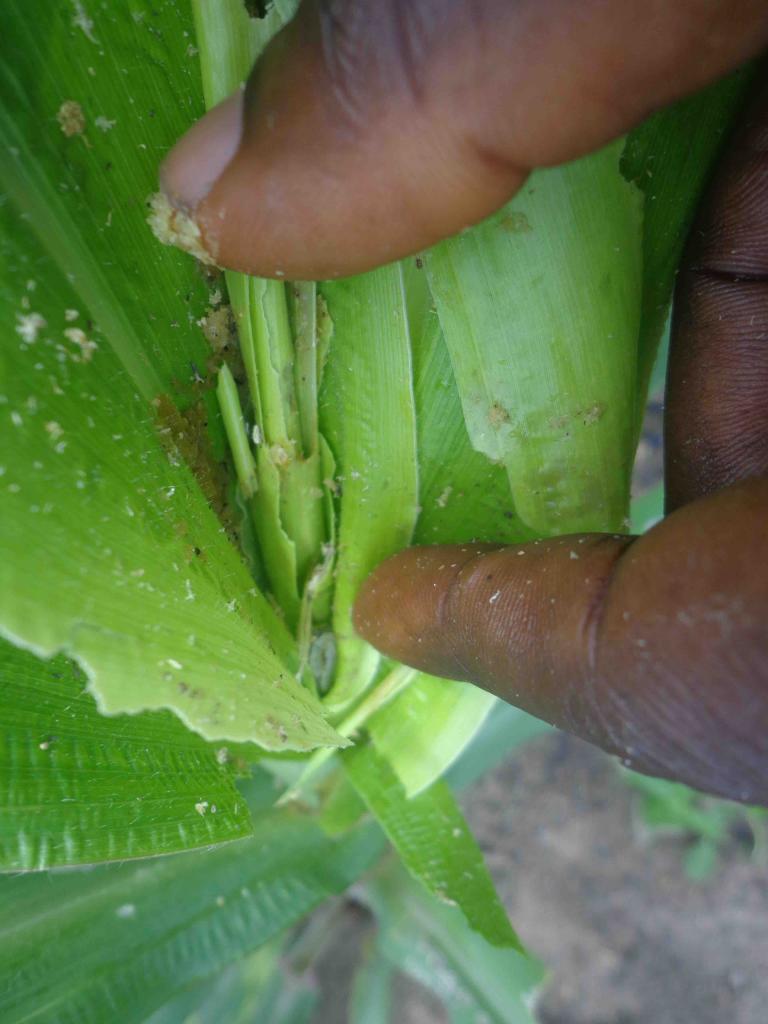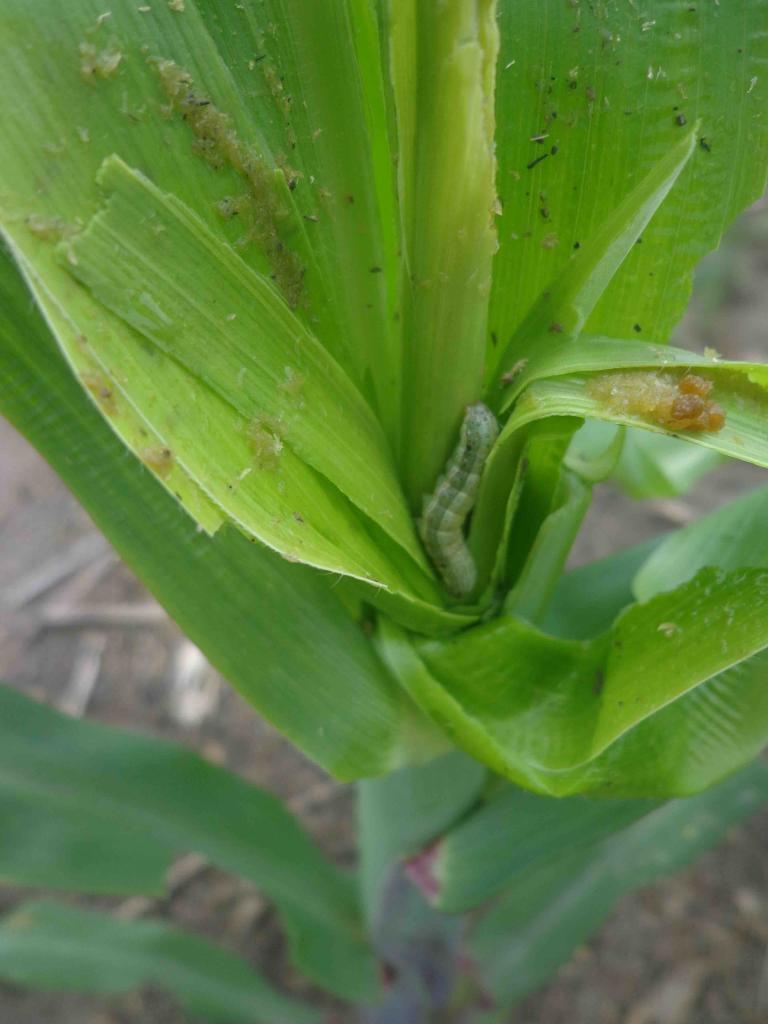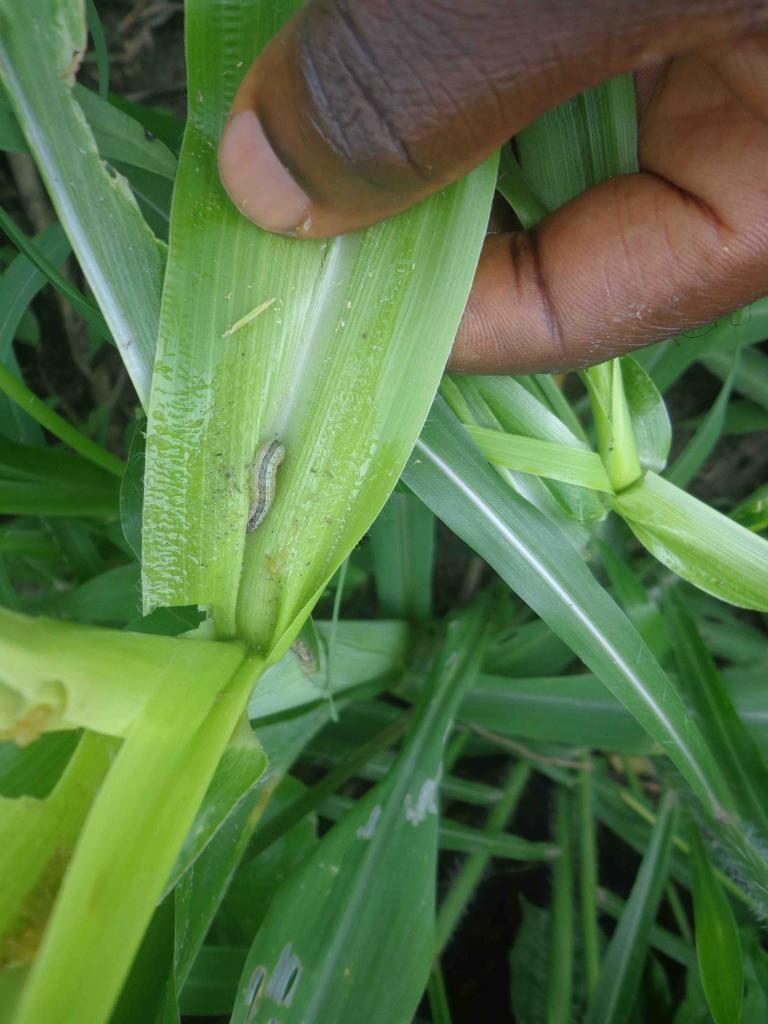Légionnaire d’automne
Fall armyworm affects over 80 different plant species. The following are important hosts: maize, rice, cotton, peanuts, soy, alfalfa, sorghum, sugarcane, bermuda grass, tomatoes, peppers, potatoes, eggplant, and tobacco.
Fall armyworm (FAW) is a species of moth and a member of the Lepidoptera. It feeds on the leaves and stems of more than 80 plant species and causes major damage to economically important crops.
FAW is regarded as a highly invasive species due to its ability to spread and reproduce quickly; female’s can lay over 1000 eggs during her lifespan. The lifecycle of FAW includes: egg, sex larval stages, pupa, and adult moth. The larvae stage is responsible for damaging the crop, and the adult moths move in the direction of the wind, which can reach up to 100 km a day. The adult moth is nocturnal (active at night).
Utilisez des variétés de plantes transgéniques connues sous le nom de variétés Bt.
Calendrier: Il est plus facile et plus rentable de surmonter les infestations au cours des premières étapes. Surveillez régulièrement le champ et recherchez les signes ci-dessus.
Assainissement: Gardez l’environnement proche des cultures en éliminant les mauvaises herbes, les débris de plantes, les parties endommagées, la croissance indésirable des plantes et les plantes à proximité qui ne sont ni cultivées ni protégées.
Les produits utilisés dans une ou plusieurs régions du monde peuvent contenir les ingrédients suivants :
Groupe 1 : cyperméthrine, lambda cyhalothrine, bifenthrine, bêta cyflutherine, et deltametrin
Groupe 2 : chlorantraniliprole et flubendamide
Groupe 3 : lufénuron, teflubenzuron, et méthoxyfénozide
Groupe 4 : pyridalyl
Groupe 5 : indoxacarbe
Groupe 6 : acétamipride
Groupe 7 : benzoate d’émamectine
Groupe 8 : méthomyl
Groupe 9 : chlorpyrifos
spinosad- produits à base et Bacillus thuringiensis.
*Names marked in red are considered to be highly poisonous to beneficial insects.
*Names marked in green are considered to be organic and IPM (integrated pest management) compatible.
Image Gallery


